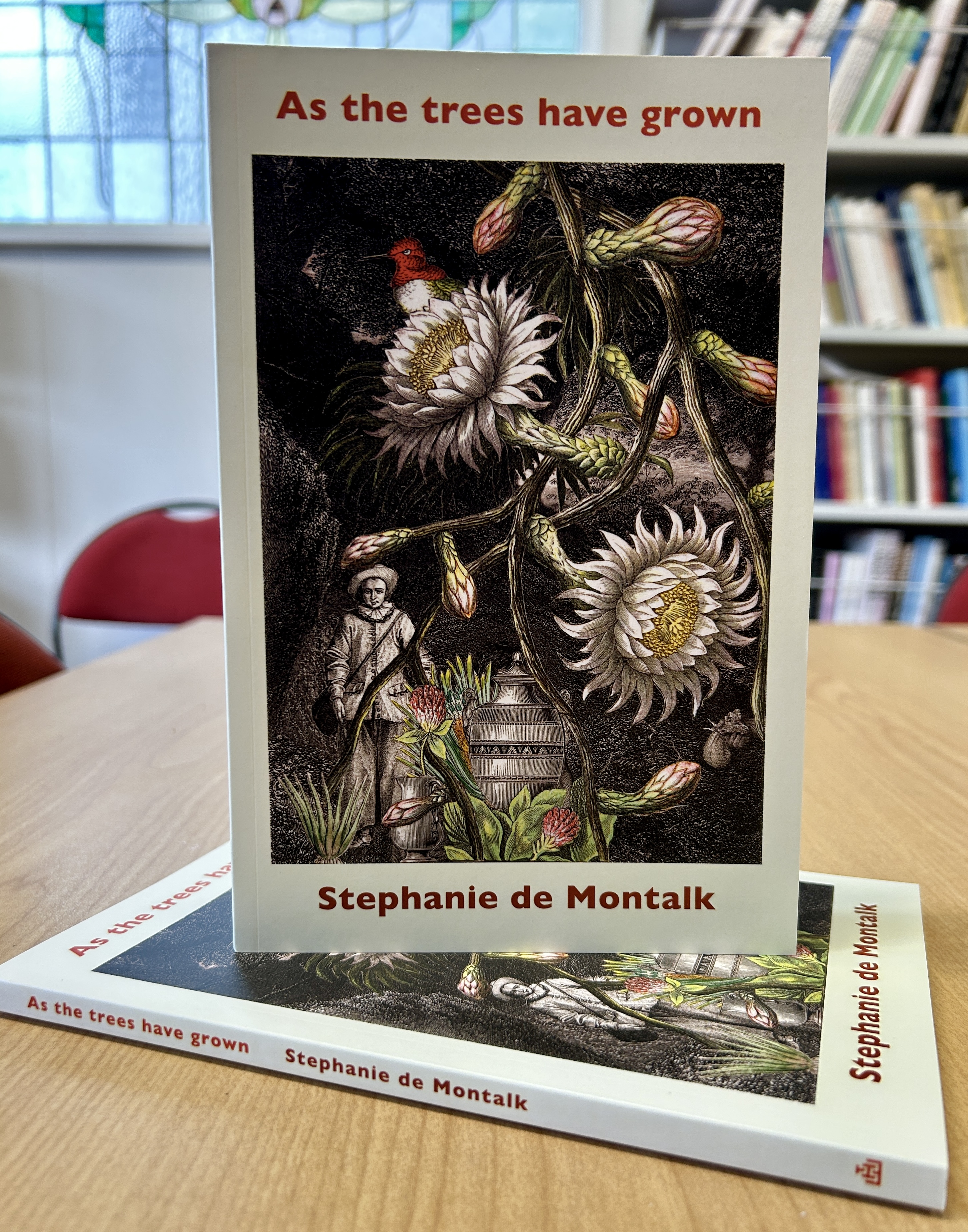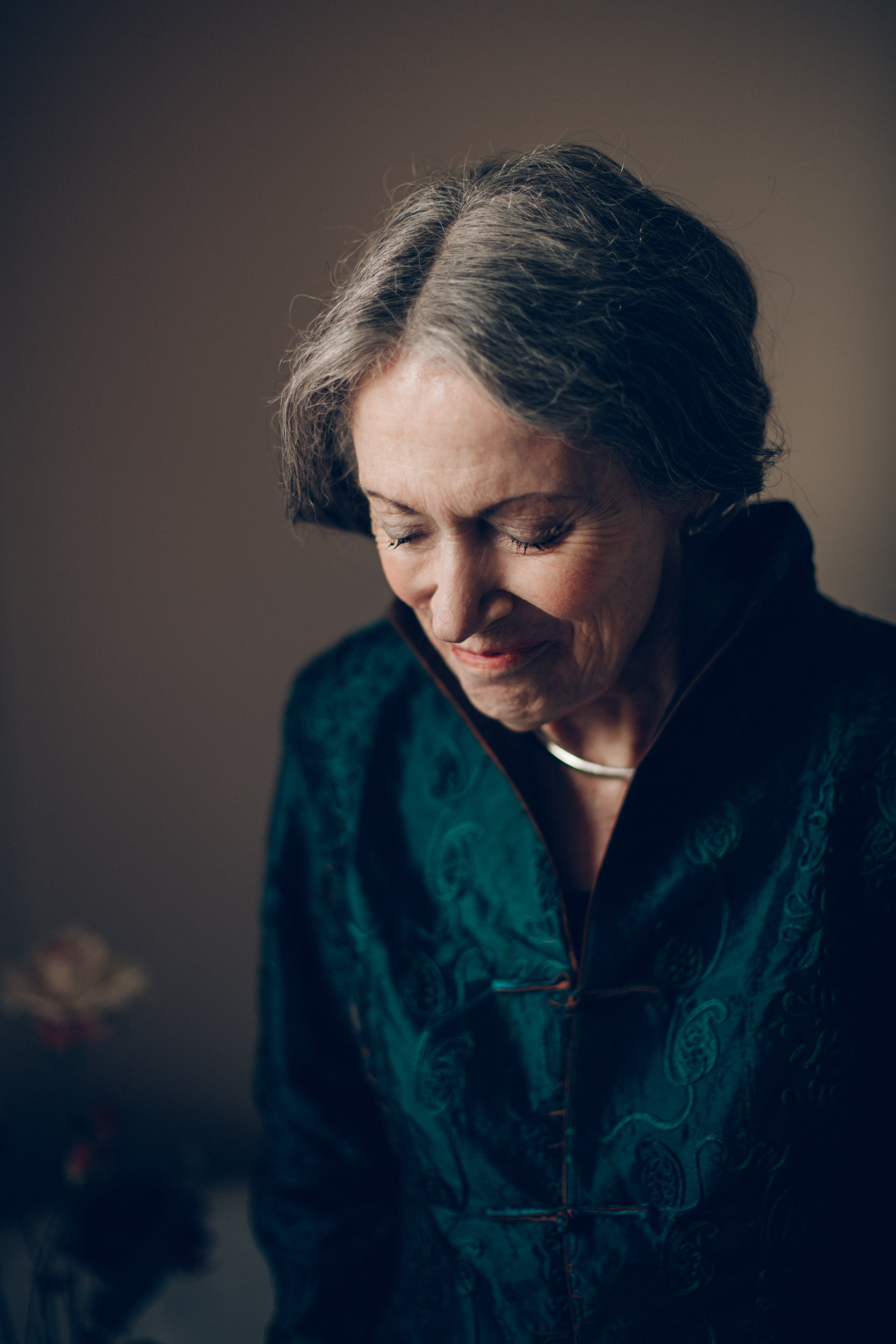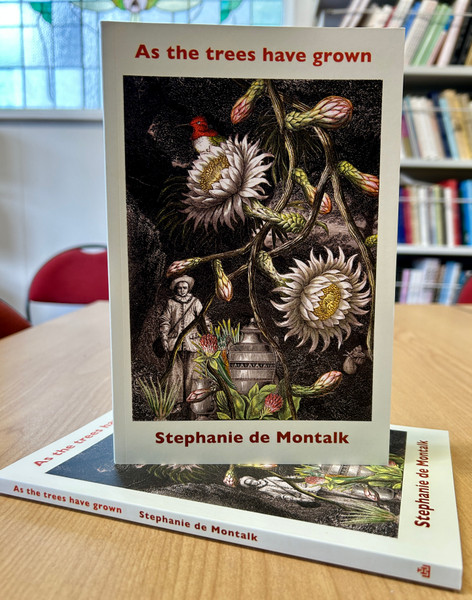'Typing at speed, as fast as I think': Q&A with Stephanie de Montalk
Posted by Ashleigh Young on 25th Jul 2023
Stephanie de Montalk is a poet, memoirist, biographer and
novelist. Her most recent book is a collection of poetry,
As the trees have grown, published in June this year, with cover art by Brendan O'Brien. Stephanie's previous book, How Does It Hurt?, a memoir and study of chronic
pain, received a Nigel Cox
Award in 2015. You can still access
Damien Wilkins's incredible launch speech for this book, on our ancient blog These Rough Notes; Damien called the book 'incredible and riveting and beautiful'.
We would've loved to have a launch for As the trees have grown but unfortunately weren't able to, so instead Stephanie's editor, Ashleigh Young, a Steph super fan, asked her a few questions about her writing life (and should've asked her more).

Do you remember the first poem you wrote (or the first poem you published)?
When I was 10, and we lived in Kaikohe in the Far North, I wrote a poem about
Opo the friendly dolphin after she/he died near the seaside town of Opononi.
The poem was published in the
Northern News. I don't recall the title, but I do
remember having difficulty closing the poem, at which point, following the
lines 'and now his soul has gone to rest', I was assisted by my father, who
suggested 'from whence it came–– the sea.' I was very pleased with that ending!
Do you write longhand, or straight onto a computer?
I write straight onto my laptop, typing at speed, as fast as I think, as if in a continuous conversation with the computer. When I left college, and before I started nursing, my parents insisted on sending me to Gilby's Business College in Wellington to become proficient in shorthand and touch typing; I attended reluctantly, but acknowledged my parents' wisdom once I started writing.

Stephanie de Montalk, 2023 (portrait by Ebony Lamb)
Do you have a favourite time of day in which to write?
I aim to write during intervals when the intractable pain I incurred 20 years ago, in an accident at the time of a book launch in Warsaw, is tolerable. These leeways are governed by three-hourly doses of a strong opioid which is not necessarily reliable!
If you ever get stuck with something you are writing, what helps you to get
unstuck?
I tend not to think of myself as 'stuck' if I'm unable to progress a piece of
writing – mostly because I know that, left undisturbed for a couple of days, or
overnight in the balm of sleep, the necessary networks will change gear,
freeing hesitations and sorting themselves out.
During this process, and because I'm particularly drawn to the poetry and prose
of European authors, I tend to turn to the lucid thinking and seemingly
effortless clarity of the writing of authors like Adam Zagajewski, Anna
Akhmatova, Czeslaw Milosz, Osip Mandelstam, Wislawa Szymborska (too many to
list).
The situation of the room in which I write, overlooking mind-clearing trees and
bushes on the slopes of Kelburn Park's Kumutoto Stream, can also be helpful.
The exotic vibe of the room – known as the Opium Room, according to its replicated
opium couch, and the genuine opium pipe I found in Hong Kong and wave about for
dramatic effect! – back-grounded by birds clustered like popinjays at target
practice! – strengthens the memory and enhances the imagination.
What is your favourite poem in your new book?
I don't have a favourite poem in As the trees have grown. The poems, like my
children, are each special in their own way.
As the trees have grown ($25, paperback) by Stephanie de Montalk is available from all good bookshops, and from our website.

